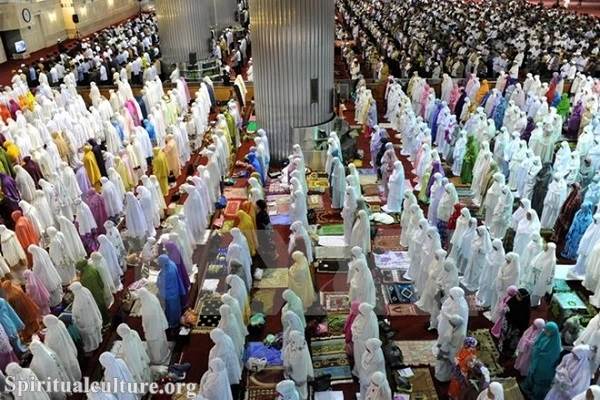
Here are a few examples of the things that are considered to be wrong or not allowed in Islam:
- Not believing in God or denying the existence of God is considered a major sin in Islam, as belief in God is one of the fundamental principles of the faith. Muslims believe that God is the only deity and that all other gods are false.
- Islam considers lying, cheating, and stealing wrong, as they go against the principles of honesty, integrity, and fairness. Muslims are expected to be truthful in all of their dealings and to respect the rights of others.
- Engaging in activities that are harmful to oneself or others, such as drinking alcohol or taking drugs, is also considered to be wrong in Islam. Muslims are expected to take care of their bodies and refrain from engaging in activities that could cause harm to themselves or others.
- Disrespecting or mistreating one’s parents is considered to be a major sin in Islam, as parents are given a high level of respect and honor in Islam. Muslims are expected to be kind and loving towards their parents and show them the respect and gratitude they deserve.
- Engaging in activities that are considered to be immoral, such as adultery or engaging in premarital sex, is also considered to be wrong in Islam. Islam teaches that sexual relationships should be reserved for marriage and that engaging in sexual activity outside marriage is sinful.
- Not following the rules and teachings of Islam, such as not performing daily prayers or fasting during Ramadan, is considered wrong in Islam. Muslims are expected to follow the rules and practices of their faith to strengthen their relationship with God and lead a virtuous life.
- Gambling is considered a major sin in Islam, as it wastes time and money and can lead to social problems. Gambling is also often associated with other negative behaviors, such as lying, cheating, and stealing, which are also considered wrong in Islam.
- Engaging in gossip or spreading rumors is also considered wrong in Islam, as it can cause harm to others and damage relationships. Islam emphasizes the importance of maintaining good relations with others and spreading gossip or rumors is seen as destructive and harmful behavior.
- Dishonesty in business or other financial matters is considered wrong in Islam, as it goes against the principles of fairness and justice. Muslims are expected to be honest and fair in all their financial dealings and avoid any actions that could be seen as dishonest or deceptive.
- Islam teaches that all human beings are equal, regardless of religion, race, or ethnicity. Therefore, discrimination or prejudice against others based on these factors is considered wrong in Islam. Muslims are expected to respect and treat all people with kindness and compassion, regardless of their background or beliefs.
- Islam also emphasizes the importance of maintaining good relations with others, so behaviors that damage relationships or cause harm to others, such as envy or jealousy, are considered to be wrong in Islam. Muslims are expected to be supportive and caring towards others and to avoid actions that could harm or damage relationships.
- Muslims are expected to be honest and truthful in their dealings and avoid lying or deception. Lying is considered a major sin in Islam, and Muslims are always taught to speak the truth, even if it may be difficult or unpleasant.
- Islam teaches that all human beings are equal and that no person is superior to another based on race, ethnicity, or nationality. Therefore, racism and prejudice are considered to be wrong in Islam. Muslims are expected to respect and treat all people with kindness and compassion, regardless of their background or beliefs.
- Islam emphasizes the importance of maintaining good relationships with others, and so behaviors that cause harm or damage to relationships, such as backbiting or spreading rumors, are considered wrong in Islam. Muslims are expected to be supportive and caring towards others and to avoid actions that could harm or damage relationships.
- Islam teaches that all human life is sacred and should be respected. Therefore, actions that cause harm or injury to others, such as violence or aggression, are considered wrong in Islam. Muslims are expected to be peaceful and to strive to avoid conflicts and disputes whenever possible.
- Islam also teaches that all wealth and resources belong to God and that they should be used in a responsible and virtuous manner. Therefore, actions that waste or misuse resources, such as extravagance or hoarding, are considered wrong in Islam. Muslims are expected to be responsible and thoughtful in their use of resources and to avoid waste or excess.
- Islam emphasizes the importance of treating others with kindness and compassion, and so behaviors that are hurtful or harmful to others, such as bullying or teasing, are considered to be wrong in Islam. Muslims are expected to be respectful and considerate towards others and to avoid actions that could cause harm or discomfort.
- Islam also teaches that all humans have the right to privacy and respect. So actions that invade the privacy of others, such as spying or eavesdropping, are considered wrong in Islam. Muslims are expected to respect the privacy and boundaries of others and to avoid actions that could be seen as intrusive or disrespectful.
- In Islam, engaging in activities that could harm one’s health or well-being, such as smoking or overeating, is considered wrong. Muslims are expected to take care of their bodies and avoid actions that could harm their health or well-being.
- Islam also emphasizes the importance of being grateful for the blessings that one has received. Therefore, actions that show ingratitude or ungratefulness, such as complaining or criticizing excessively, are considered wrong in Islam. Muslims are expected to be thankful and to show gratitude for the blessings that they have received.





